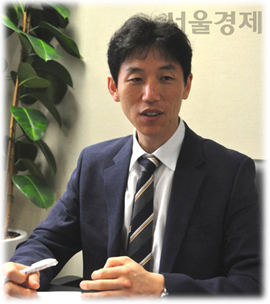| 일 | 월 | 화 | 수 | 목 | 금 | 토 |
|---|---|---|---|---|---|---|
| 1 | 2 | 3 | 4 | 5 | ||
| 6 | 7 | 8 | 9 | 10 | 11 | 12 |
| 13 | 14 | 15 | 16 | 17 | 18 | 19 |
| 20 | 21 | 22 | 23 | 24 | 25 | 26 |
| 27 | 28 | 29 | 30 | 31 |
- Political Regimes
- mechanism of politics
- Task Delegates of the Ruler: Inner Circle
- power and organization
- Cohesion Force
- Political Change
- Samjae Capacity
- Samjae Capacities
- the 2nd law
- Regime Change
- political organization
- Political power
- Order of Choice
- politics of Inner Circle
- Power
- 1st Law of politics
- political phenomena
- survival process theory
- the 3rd Law of politics
- Mathematical Model of politics
- Political Regime
- Value Systems
- Differences in Individual Abilities and Tendencies
- Canonical Politics
- politics and war
- politics
- Operation of the 2nd Law
- Mathematical Model of political science
- Orderliness of Choice
- new political science
- Today
- Total
New Political Science
b. Formulation of the 3rd Law 본문
b. Formulation of the 3rd Law
The 3rd law here refers to the following contents:
[Ch.3.302: Repetition] If the regime change force( \( \vec{H} \) ) is greater than the resistance force( \( \vec{R_{ST}} = \vec{C} + \vec{S_{TB}} \) ), regime change occurs.
[Ch.3.303] Generally, as time passes, the vertical distance (L) between the profit equilibrium condition and the rule system increases.
[Ch.3.304] The greater the regime change(R→R*), the greater the regime change cost( \( \vec{C} \) ).
[Ch.3.305] The regime change force( \( \vec{H} \) ) is proportional to the social change rate and time. The greater the changes in technology, knowledge, and social structure, the greater the social change rate.
[Ch.3.306] As the regime duration period(T) increases, the cost of the political society decreases and the repression force( \( \vec{S_{TB}} \) ) increases.
[Ch.3.307] The greater the regime flexibility(Flx), the greater the basic cost of maintaining the regime. However, the regime change force( \( \vec{H} \) ) decreases.
Therefore, the following phenomena are observed:
[Ch.3.308] Generally, as social changes such as technology, knowledge, culture, and surrounding conditions increase, regime change force also increases. In addition, as the duration of the rule system increases, regime change force increases gradually.
[Ch.3.309] When regime change force increases, repression force may operate and strengthen, thereby increasing political costs.
[Ch.3.310] When political costs are high, repression force weakens in the short term. If regime change force becomes sufficiently large, political change occurs.
[Ch.3.311] Without repression force, the rule system frequently changes, and even when the flexibility of the rule system is low, the rule system changes frequently.
[Ch.3.312] If the profit equilibrium condition moves into the rule system due to some cause before regime change, regime change does not occur.
[Ch.3.313] If regime change occurs frequently, the resulting political costs increase significantly. This leads to an increase in repression force, which itself incurs high costs.
The three important long-term implications contained within the implications of the 3rd law are as follows:
[Ch.3.314] The longer a political regime is maintained, the greater the subsequent political changes that will occur.
[Ch.3.315] Regime change occurs only when those who demand regime change have sufficient political capacity, rather than due to demands from a larger group of people.
[Ch.3.316] It is impossible to establish a permanently stable political regime without further political change.
Every part of a political regime is inherently subject to change. People merely temporarily fix many parts of the political regime in order to expand their own survival capabilities. Therefore, as conditions of human life continue to change, political regimes must inevitably undergo long-term changes, and political phenomena in stable political regimes are just one segment of major political changes.
'Mechanism of Politics' 카테고리의 다른 글
| a. Explanation of Key Concepts of the 3rd Law (0) | 2023.12.14 |
|---|---|
| (2) Interpretation and Examples of the 3rd Law (0) | 2023.12.14 |
| a. ㉡ Schematic Understanding of the 3rd Law (0) | 2023.12.14 |
| a. ㉠ Detailed Content of the 3rd Law (0) | 2023.12.14 |
| C. (1) Intuitive Explanation Through Diagrams (0) | 2023.12.14 |

